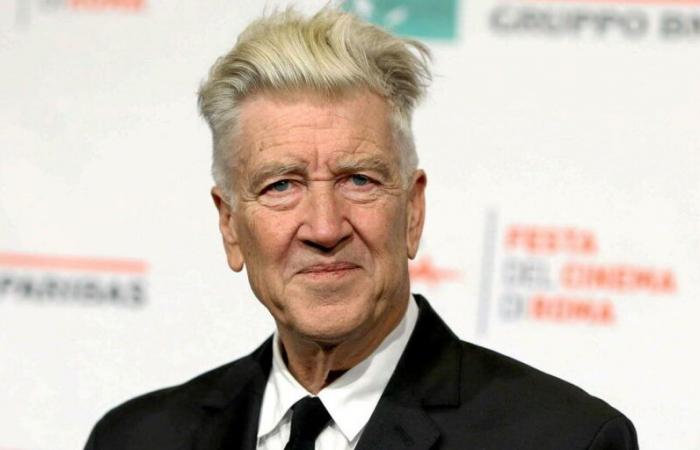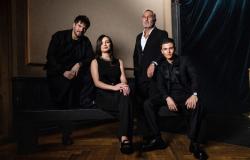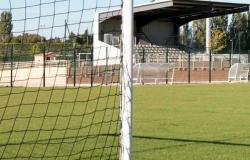SIf you’re expecting a classic biography or even a eulogy from this article, you may be disappointed. The news of the death of David Lynch, this Thursday morning, January 16, plunged millions of movie fans into an abyss of sadness. I’m part of it. Like everyone who loves cinema, I owe him so much. So let me tell you about my David Lynch. I was barely 13 when I discovered Eraserhead. I didn’t understand much, but I knew I had had an experience that would change everything. I have rewatched the film a good thirty times since, and my fascination with this experience remains intact. I still don’t understand everything.
But understanding is an illusion. In interviews, Lynch hated being asked why. He refused to explain. “The idea is everything,” he said. “Ideas come; my job is just to let them come, catch them and put them on the screen. » When I asked him why, he wore a smile that I learned to recognize. I quickly stopped asking him to explain. Lynch taught the kid that I was another vision of cinema, another way of watching films, another way of approaching the world. For me, as for so many other film buffs of my generation, there is a before and an after seeing your first David Lynch.
Broken doll
Lynch not only changed my life as a movie buff, he also changed my life. In 1996, I had the chance to spend a day on the set of Lost Highway for the magazine where I worked at the time, Mad Movies. I was still based in Paris and I had requested a set visit from production. Lynch himself had agreed; he had appreciated my articles on Twin Peaks. The day on set was unforgettable. I had witnessed a simple scene: the one where Bill Pullman wakes up in the skin of Balthazar Getty. No dialogues; Getty wakes up in the garden of a modest suburban house and wanders on the lawn, without really understanding what is happening.
Simple scene, yes, but surreal atmosphere… Lynch often filmed to music. Carlos Jobim’s “Insensatez” blared from off-camera speakers as Getty walked across the dry grass. Lynch gave his instructions gently. He never raised his voice with his actors. “I never tell actors what to do, I tell them what to feel,” he explained. Thus, on the set of Mulholland Driveactress Laura Harring told me: “After the car accident scene, when I got out of the car, David didn’t tell me to walk this way or stand this way. He just told me that I must feel like a broken doll. A broken doll… I understood everything. »
Lynch’s two houses in LA
That winter day in 1996, in this suburban garden, I experienced a magical moment. With each take, I had the impression of seeing Getty floating above the threadbare lawn. A moment of pure cinema created by one of the greatest masters unfolded before my eyes. The article I took from this shoot caught the attention of the editor-in-chief of Canal+, who then hired me as a correspondent in Los Angeles. It was twenty-eight years ago. David Lynch had changed my life.
I told him this story a few years later. He didn’t say anything, he just smiled. I will never forget that smile. Once settled in Los Angeles, I had the pleasure of crossing paths with him often. I interviewed him about fifteen times at his home in the Hollywood Hills, just off Mulholland Drive. A house that you probably know, because it is that of Bill Pullman in Lost Highway. Lynch had two identical houses facing each other: on the right, the family house; on the left, his workspace. There was its projection room, its sound studio, its editing and mixing rooms, and its painting workshop. It was in his projection room that the interviews were held.
A little further up, in his hillside garden, there was also a cabinetmaking workshop. David loved making oddly shaped furniture. During an interview in April 2002, he proudly showed me a strange wooden sink that he had built with a retractable siphon… so he could urinate without going back down to the house. He laughed out loud as he presented his invention to me.
Interview in front of a rotten ham
The same year, he gave me an unforgettable gift. On the occasion of the promotion of his album Blue Bob – he was also a musician – I had to do an interview that I thought was classic. But, for the first time, his assistant brought my cameraman and me into the family home and invited us to wait in the living room, where we were served coffee and biscuits. Remarkable hospitality but a surprising delay, because David was always punctual… After 40 to 45 minutes of waiting, the assistant came back to get us and made us promise not to ask any questions about what was happening around us. I could ask David about everything except what was around us. Intrigued, I accepted.
-We then climbed a hill to arrive in front of an incredible setting. A red and blue light illuminated a cave carved into the hillside. Above this cave, suspended from a frame specially made for the occasion by his assistant (Eli Roth, the future director of Hostel, then a very young man), hung a rotten ham, attacked by flies. In front of this improbable setting, sitting on the ground, was the musician John Neff, covered in mud, cooking eggs in their shells on a frying pan placed over a fake wood fire.
As for David, shirtless and also covered in mud, he answered my questions without me being able to talk about what was happening around us, as I had promised to do. From time to time, he interrupted the interview to find a statuesque young woman, clad only in a pair of boots, with whom he began dance steps without music. David had given me a priceless gift: a unique moment in Lynchland, just for us (if you want to see this crazy sequence, I rebroadcast it on my show L’Hebd’Hollywood on Canal+ from January 18. It will soon be available here). After filming, we spent the evening having drinks in his kitchen. He laughed like a child, delighted with his joke.
« Di-Di-Yaaay ! »
To Discover
Kangaroo of the day
Answer
I also had the immense honor of following the filming ofUne true story and of Mulholland Drive : three days for the first, five for the second. I had the incredible privilege of observing one of the greatest filmmakers of our time at work. It was like witnessing Michelangelo painting the Sistine Chapel or Eiffel overseeing the construction of his tower. Yes, at that level. Subsequently, I often met him again during musical evenings, at the release of his final feature film, Inland Empirefor the third season of Twin Peaksor even for restored versions of his films. In Cannes too… And each time, with the same joy.
David took great pleasure in pronouncing my name in his own way. Not “Didier”, like everyone else, but “Di-Di-Yaaay”, stretching the last syllable. He always started his answers to my questions with: “You know, Di-Di-Yaaay…”, and he would slip in my name whenever he had the chance. This made me angry in editing, because I had to cut all these “Di-Di-Yaaay…”. Today, what I wouldn’t give to hear him say to me one last time: “You know, Di-Di-Yaaay…” Goodbye, Mr. Lynch.






